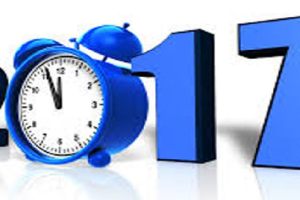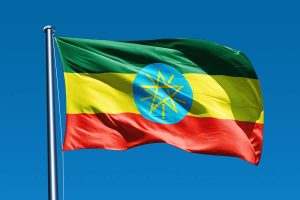
Reforming the global system has been a hot issue in recent times. Establishing a more inclusive and balanced world coupled with global system needs a holistic and comprehensive approach. Most of those critics say that the system has been used for so long, and it must be reformed in order to take the same path with the current global truth.
Inclusion and fairness have been the key concerns for those who need the reform. It is the fact that most of the powerful institutions coupled with global financial organs are believed to be restricted and unfair. Such reality is vividly seen especially in the African representations in the organs.
In the current climate, Africa has been calling the entire world to establish a fair system so that it will include the excluded. To meet the desired objective, a real reform must be accepted and implemented by member states of the high table organs.
The call for reforming the United Nations Security Council (UNSC) has, for instance, been entertained by most nations, especially Africa and the Global South. To this point, countries like Ethiopia has played the lion share in advocating such powerful stride towards inclusion and fairness.
At some point, the issue has gained some ears from the responsible stakeholders. And, there are some well acknowledged decisions and actions taken by some blocs like the G20 as the bloc agreed to include the African Union (AU) as its permanent member. The move definitely gives the Africa an opportunity to voice on some key global issues.
Besides, in recent times, some interesting news have come from the global finance institutions regarding incorporating and dedicating more seat to those who have not been represented as expected. In the recent report, Tobias Rasmussen, IMF Resident Representative in Ethiopia, stated, “The IMF is focused on ensuing an inclusive international financial system that meets the evolving need of this region. We have reached some important milestones just in the past year.”
Accordingly, the IMF Board of Governors has lately issued a resolution on creating a 25th Chair at the IMF’s Exclusive Board, based on the recent IMF’s press release, adding, “On July 16, 2024, the IMF Board of Governors, the highest decision-making body of the IMF, issued a new resolution to increase the number of Executive Directors on the IMF’s Executive Board by adding a 25th chair intended for Sub-Saharan Africa.”
Approval by the Board of Governors, as to the presser, to change the size of the Executive Board requires an 85% majority of the total voting power. The Fund’s membership approved the resolution allowing for the creation of a 25th chair, exceeding the required threshold. The new Executive Board of 25 Executive Directors will take office on November 1, 2024.
Though the aforementioned actions have been exercised, Africa and the Global South still call for more tangible global reforms. The African Continent, through some of its state leaders and elites, is pushing hard to get its permanent representations in those blocs and organs. In good truth, Africa appreciates the already decided actions from those blocs and institutions, but the continent still wants a reformed system to be implemented so that more than 1.3 billion people will have a permanent representative who defends their interest.
In addition, the issue of reforming the global system is highly supported even by some of the powerful states. UN Secretary-General António Guterres also said, “With the structural aspects of the reforms now well consolidated, it is imperative to keep the foot in the pedal to achieve the cultural change we need for greater collaboration across pillars and tangible results for people on the ground.”
Many of the members of the United Nations and its institutions have shown their willingness to support African nations to represent themselves in those administrations. Russia, with a Veto Power in the UNSC, for instance, has disclosed its support towards the African countries’ quest of having permanent seats at the UNSC.
Having a stay with a local media, Evgeny Terekhin, Russia’s Ambassador to Ethiopia, stated that the current composition of the UN Security Council is unjust and does not reflect the global reality. To this end, Russia has fully reiterated its supports to the quest of African countries for a permanent seat at the United Nations Security Council.
Africa with over a quarter of the United Nations membership is grossly underrepresented in the Security Council, and this is a historical injustice that must be rectified, the ambassador said, adding, “Every year it is getting even clear to everyone that many years ago, when the United Nations Organization was established, there was an injustice made regarding African countries. I mean that African countries, which constitute by now more than a quarter of the voices in the United Nations, are deprived of a permanent seat in the Security Council.”
Justifying the unfair representation and imbalance, the ambassador noted that the UN founding in an era when only two or three African nations were independent contributed to this imbalance. The world has changed dramatically since then.
Ambassador Terekhin added that it is high time to correct this anomaly. “Almost 80 years have passed, the global situation has radically changed; and it is high time to correct this political and historical injustice,” he noted.
Moreover, the ambassador pointed out that the UN Security Council frequently addresses African issues, making it imperative for the continent to have a permanent voice in decision-making. Therefore, Russia has been expressing support for the principles outlined in the Ezulwini Consensus and Sirte Declaration, which advocate for African representation on the Security Council.
“We support African countries to get their place in the Security Council, 70% of the agenda is towards African problems. So, it is natural that we support the general principles envisaged in Ezulwini Consensus and the Sirte Declaration.” However, Ambassador Terekhin cautioned that any expansion of the Security Council should be approached with care.
We must avoid inflicting damage to the UN system, he underscored, adding that the current composition, with three permanent members representing the West, is already skewed. Admitting additional Western powers like Japan and Germany would exacerbate this imbalance.
“The composition is already distorted in favor of the West, and at the same time we are witnessing attempts to admit to the permanent membership of two more Western countries such as Japan and Germany.” The ambassador stressed the importance of careful consideration before making changes. “We should measure our steps many times.” Recall that some countries in Africa, including Ethiopia, have been advocating for a reform of the UN, especially the Security Council.
BY DANIEL ALEMAYEHU
THE ETHIOPIAN HERALD TUESDAY 20 AUGUST 2024





